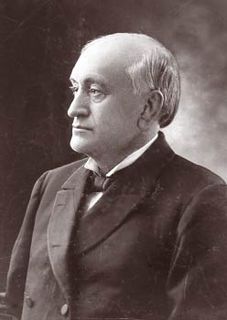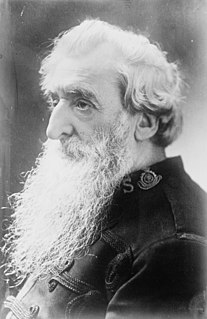A Quote by Phineas F. Bresee
We are debtors to every man to give him the gospel in the same measure in which we have received it.
Related Quotes
Like her [Mary], let us be full of zeal to go in haste to give Jesus to others. She was full of grace when, at the Annunciation, she received Jesus. Like her. we too become full of grace every time we receive Holy Communion. It is the same Jesus whom she received and whom we receive at Mass. As soon as she received Him. she went with haste to give Him to John. For us also. As soon as we receive Jesus in Holy Communion, let us go in haste to give Him to our sisters, to our poor, to the sick, to the dying, to the lepers, to the unwanted, and the unloved. By this we make Jesus present in the world today.
Like every man who appears at an epoch which is historical and rendered famous by his works, Jesus Christ has a history, a history which the church and the world possess, and which, surrounded by countless memorials, has at least the same authenticity as any other history formed in the same countries, amidst the same peoples and in the same times. As, then, if I would study the lives of Brutus and Cassius, I should calmly open Plutarch, I open the Gospel to study Jesus Christ, and I do so with the same composure.
In the first section of the Doctrine and Covenants we read that 'the Lord shall come to recompense unto every man according to his work, and measure to every man according to the measure which he has measured to his fellow man.' (D&C 1:10.) This principle, showing the manner by which God will judge us, puts a new light upon the commandment to love our neighbors as ourselves, and should persuade us to take that law seriously.
The saying of Protagoras is like the views we have mentioned; he said that man is the measure of all things, meaning simply that that which seems to each man assuredly is. If this is so, it follows that the same thing both is and is not, and is bad and good, and that the contents of all other opposite statements are true, because often a particular thing appears beautiful to some and ugly to others, and that which appears to each man is the measure
Feeble are we? Yes, without God we are nothing. But what, by faith, every man may be, God requires him to be. This is the only Christian idea of duty. Measure obligation by inherent ability! No, my brethren, Christian obligation has a very different measure. It is measured by the power that God will give us, measured by the gifts and possible increments of faith. And what a reckoning will it be for many of us, when Christ summons us to answer before Him under the law, not for what we are, but for what we might have been.
The differing opinions regarding the gospel are often categorized as different variations of the same truth, or coming at the same truth from different angles, or even emphasizing different aspects of the same truth. This fails to recognize that the different 'variations' are often altogether different gospels. The Reformed gospel is completely different from the Roman Catholic gospel; a faith-based gospel is in direct contradiction to a works-based gospel; a truly evangelical gospel stands in contrast to an ultracharismatic gospel.
Condemn no man for not thinking as you think. Let every one enjoy the full and free liberty of thinking for himself. Let every man use his own judgment, since every man must give an account of himself to God. Abhor every approach, in any kind or degree, to the spirit of persecution, if you cannot reason nor persuade a man into the truth, never attempt to force a man into it. If love will not compel him to come, leave him to God, the judge of all.
To get a man soundly saved it is not enough to put on him a pair of new breeches, to give him regular work, or even to give him a University education. These things are all outside a man, and if the inside remains unchanged you have wasted your labor. You must in some way or other graft upon the man's nature a new nature, which has in it the element of the Divine.






























